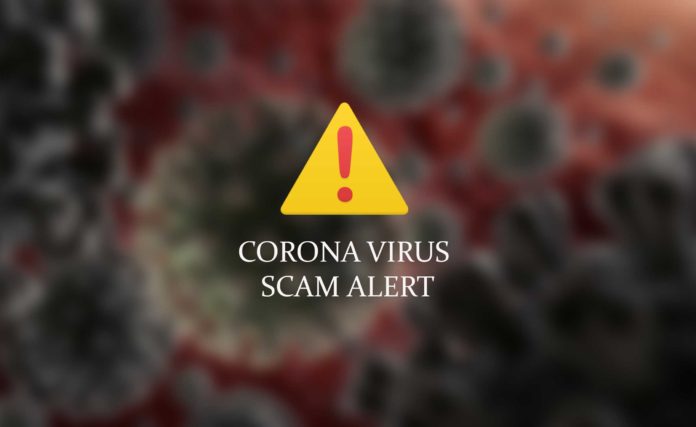Table of Contents
Security experts have issued a warning about the proliferation of cybercriminals exploiting the corona virus pandemic via phishing attacks. Warning. This is a Corona Virus Scam Alert.
How Corona Virus Scam works?
Cybercriminals are sending emails claiming to be from legitimate organizations and or impersonating individual authorities from certain organization. Pretending to hold essential information about the corona virus. Or offering an advice or some mitigating measures to control the disease.
Such emails may ask to open an attachment, access a link to a web page, that will eventually activate executable files and or download malicious software onto your device.
The malicious software, also known as malware, allows cybercriminals to take control of your computer, record your keystrokes, or access your personal information and financial data, which could lead to identity theft.
How to protect yourself against Corona Virus Scam?
RULE NO 1. BE SUSPICIOUS.
There are significant number of corona virus-related domains that have been registered in recent days and many have been linked to malicious activity. Be suspicious of emails sent from the following dangerous domains/links:
• coronavirusstatus[.]space
• coronavirus-map[.]com
• blogcoronacl[.]canalcero[.]digital
• coronavirus[.]zone
• coronavirus-realtime[.]com
• coronavirus[.]app
• bgvfr.coronavirusaware[.]xyz
• coronavirusaware[.]xyz
• corona-virus[.]healthcare
• survivecoronavirus[.]org
• vaccine-coronavirus[.]com
• coronavirus[.]cc
• bestcoronavirusprotect[.]tk
• coronavirusupdate[.]tk
Likewise, Be suspicious of emails having these email subjects:
• Covid19 Safety Measures,
• Health Advice Email,
• News Alerts from WHO,
• News Alerts from CDC,
• Corona Virus Map,
• CoronaVirus Update,
• COVID19 – Everything You Need to Know, etc.
RULE NO 2. ALWAYS CHECK AND VERIFY
Check the sender’s email address before you click or download any documents. Most of the time, cybercriminals are hiding under different names — that seems to be legitimate name of an organization. How to verify? Right click on the sender’s name to reveal the true email address and ensure and to make sure it is coming from a trusted domain.
RULE NO 3. NEVER PROVIDE PERSONAL INFORMATION TO ANYONE
Never provide personal information such as username, password, bank information, etc. via email. Legitimate organizations never ask for such information. In many cases, cybercriminals always insist or convince you to act now. Cybercriminals often try to create a sense of urgency or demand immediate action – with that go back to RULE NO 1.
Remember there is now scammers, if no one allows to be scammed!
Where to find legitimate information about the corona virus?
It’s smart to go directly to reliable sources for information about the corona virus. That includes government offices and health care agencies.
Here are a few of the best places to find answers to your questions about the corona virus.
- World Health Organization. WHO provides a range of information, including how to protect yourself, travel advice, and answers to common questions.
- Centers for Disease Control and Prevention. The CDC website includes the most current information about the corona virus. Here’s a partial list of topics covered.
- National Institutes of Health. NIH provides updated information and guidance about the corona virus. It includes information from other government organizations.
- Department of Health (DOH). It provides updated information and local guidance about the disease.
References:






If you believe what the C.D.C. and WHO tell you.. hahahahahaahahja TAKE THE VACCINE!!!
Hi Dave. Have you ever read the article yet? Kindly read it first please.
Comments are closed.